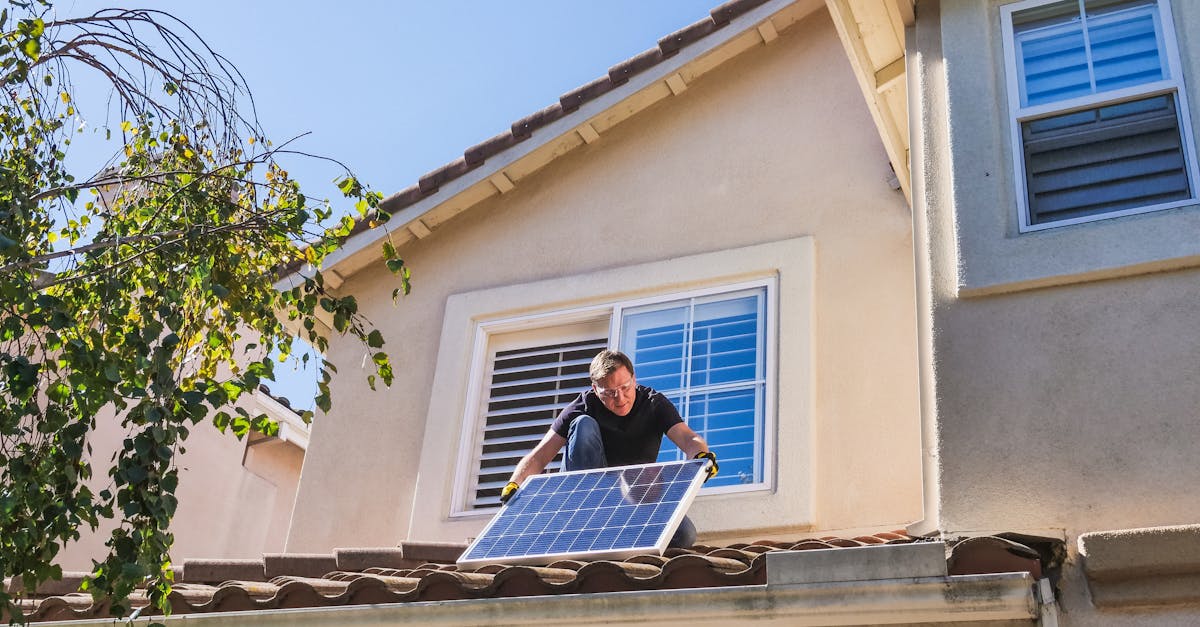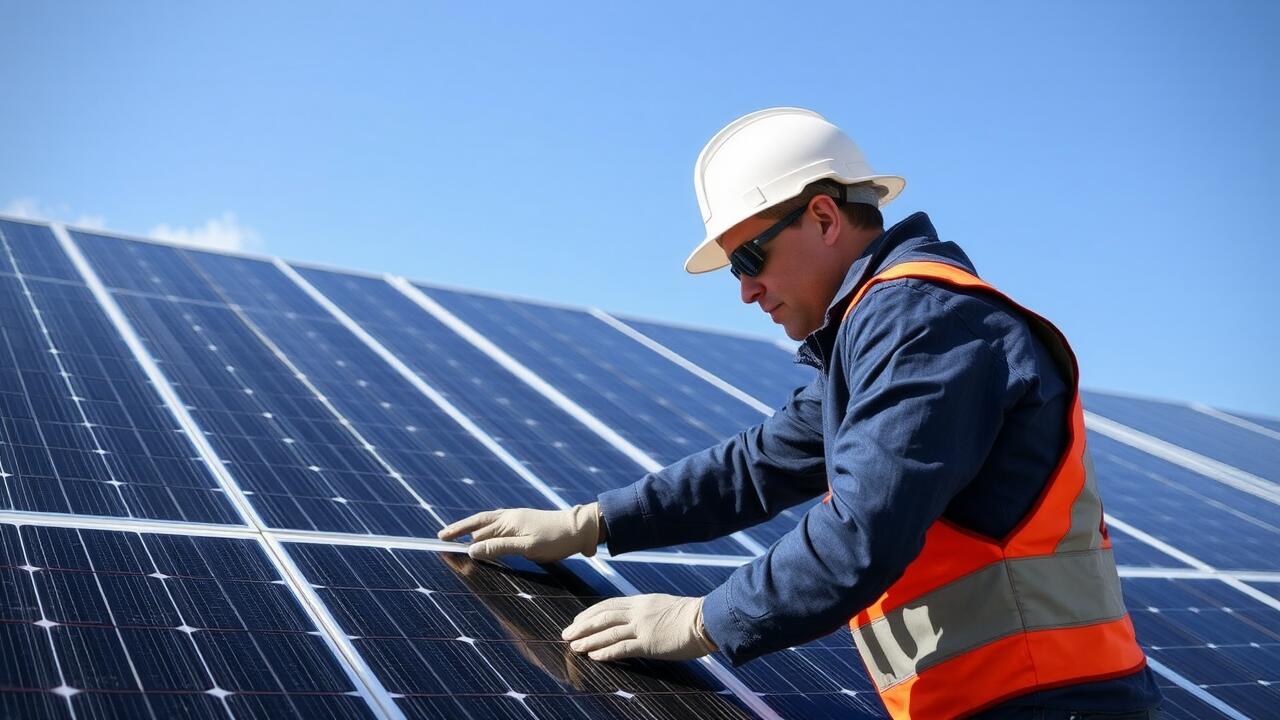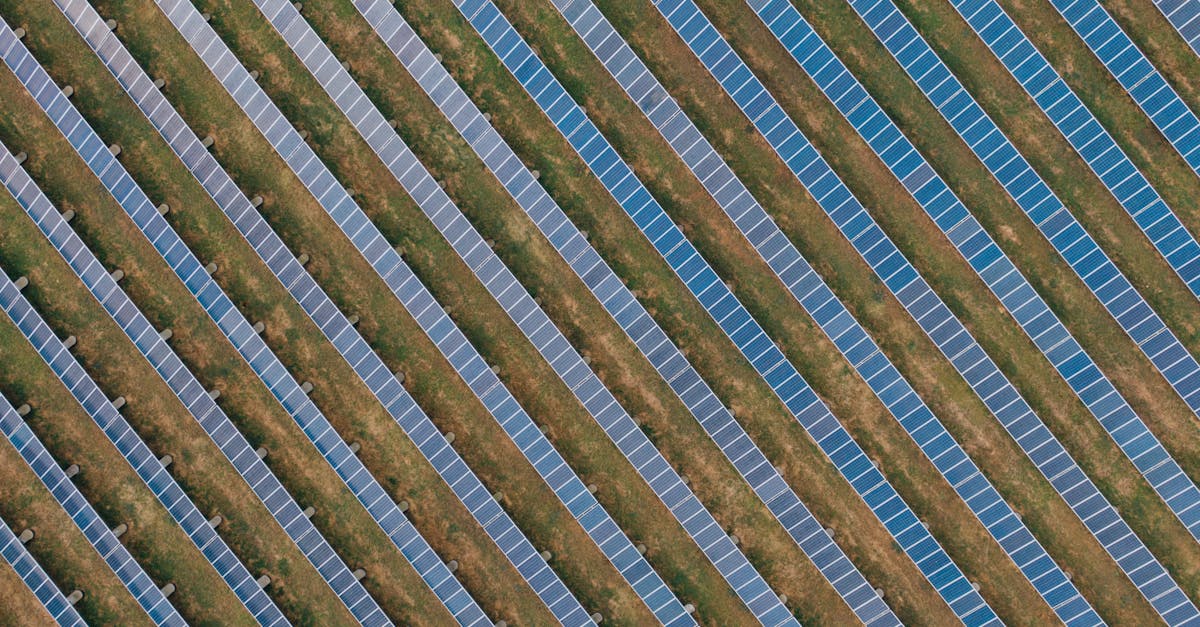
Using Mobile Applications
Mobile applications have revolutionised the way homeowners can engage with their solar panel systems. These apps allow users to track real-time data on energy production directly from their smartphones. Many applications include features such as performance reports and alerts for any operational issues, making it easier to ensure the solar panel monitoring is efficient and effective.
Moreover, these mobile applications often offer user-friendly interfaces that display historical performance data. This detailed data analysis can help homeowners identify patterns in energy production and consumption. Not only does this facilitate informed decision-making regarding energy use, but it also allows for proactive management of the solar panels, ensuring they operate at peak efficiency throughout their lifespan.
Top Apps for Solar Monitoring
Numerous mobile applications provide users with the ability to effectively track their solar panel output. These apps are designed to offer real-time data, including energy production and consumption statistics. Many of them also incorporate features such as historical data analysis, allowing users to observe trends in their solar panel performance over time. With the rise of smart devices, several of these applications can seamlessly integrate with other home automation systems to enhance the solar panel monitoring experience.
Top apps known for their user-friendly interfaces and comprehensive functionality include SolarEdge, Enphase, and Sunny Portal. Each application has unique features tailored for different solar setups. Solar panel monitoring through these apps often includes notifications about system performance issues, financial savings, and even environmental benefits from reduced carbon emissions. By leveraging such technology, users can maintain optimal efficiency and maximise their solar energy investments.
Integrating with Home Energy Systems
Integrating solar panel systems with home energy systems can significantly enhance efficiency and energy management. By linking solar panel monitoring systems with smart thermostats, energy storage solutions, and smart appliances, homeowners can optimise their energy consumption. These integrations allow for data-driven decisions that maximise the use of solar energy while minimising reliance on the grid. This synergy can lead to greater savings and a more sustainable household energy model.
Home energy systems can also provide a comprehensive overview of energy production and consumption. Users can monitor not only their solar output but also how much energy is used by different appliances throughout the day. By understanding these patterns, households can adjust their energy use accordingly, ensuring that they take full advantage of solar power during peak production times. This level of integration empowers homeowners to make informed choices, further enhancing the benefits of solar panel monitoring.
Smart Home Compatibility
Many homeowners today are integrating solar panel systems with their smart home technologies. This compatibility allows for seamless management of energy use and enhanced monitoring capabilities. With smart devices, users can track their solar panel output in real time, receiving alerts and updates directly through their preferred home management apps. These applications often provide detailed insights into how much energy solar panels are generating compared to consumption.
Incorporating solar panel monitoring into a smart home setup can optimise energy efficiency. Systems can automatically adjust consumption patterns based on solar output, shifting usage to peak sunlight hours. This integration not only maximises the benefits of solar energy but also contributes to reducing overall electricity costs. As technology advances, the synergy between solar panel systems and smart home devices continues to improve, offering greater convenience and control for homeowners.
Evaluating Seasonal Performance
Seasonal performance evaluation is crucial for understanding how solar panels will perform throughout the year. Each season presents different weather conditions, which can significantly impact solar energy production. For instance, longer daylight hours during summer typically lead to higher energy generation, while shorter days in winter may reduce output. By closely monitoring solar panel output over the seasons, homeowners can identify trends and better anticipate energy needs.
Solar panel monitoring systems often provide detailed insights into performance variations caused by seasonal changes. These systems track data such as energy generated and efficiency rates, allowing users to compare output across different times of the year. Observing this data helps in making informed decisions about energy usage and might even prompt adjustments to maximise solar efficiency, particularly during less productive months.
Impact of Weather Variations
Weather variations significantly influence the performance of solar panels. Overcast days can reduce sunlight exposure, leading to lower energy production. Similarly, seasonal changes, such as shorter daylight hours in winter, directly impact the amount of solar energy that can be harnessed. Solar panel monitoring systems track these fluctuations in real-time, enabling users to understand how weather conditions affect their energy generation throughout the year.
In addition to seasonal impacts, different weather phenomena, such as rain or snow, can also play a role in solar efficiency. Rain often helps to clean the panels, potentially improving output immediately after a storm. Conversely, heavy snowfall can temporarily obstruct sunlight and hinder performance until cleared. With a reliable solar panel monitoring system, homeowners can analyse the data collected, identifying patterns and making informed decisions on how to optimise their energy use based on prevailing weather conditions.
FAQS
How can I track my solar panel's energy production?
You can track your solar panel's energy production by using mobile applications specifically designed for solar monitoring. These apps connect to your solar inverter and provide real-time data on your system’s performance.
What are some of the top apps for solar monitoring?
Some of the top apps for solar monitoring include SolarEdge, Enphase Enlighten, and Sense. These applications offer features such as real-time output tracking, historical performance data, and alerts for any issues with your system.
Can I integrate solar monitoring with my home energy systems?
Yes, many solar monitoring solutions can integrate with home energy systems, enabling you to manage your energy consumption more effectively. Smart home systems can also provide insights into your overall energy usage in conjunction with solar generation.
What should I consider regarding smart home compatibility?
When considering smart home compatibility for solar monitoring, look for applications that can connect with your existing smart home devices. Ensure that your solar monitoring system can integrate with platforms such as Google Home or Amazon Alexa for seamless control and information access.
How do weather variations impact the performance of my solar panels?
Weather variations, such as sunlight intensity, temperature, and cloud cover, can significantly impact the performance of your solar panels. Monitoring your system's output during different weather conditions will help you evaluate how these factors affect energy generation and allow for better performance assessment over time.


